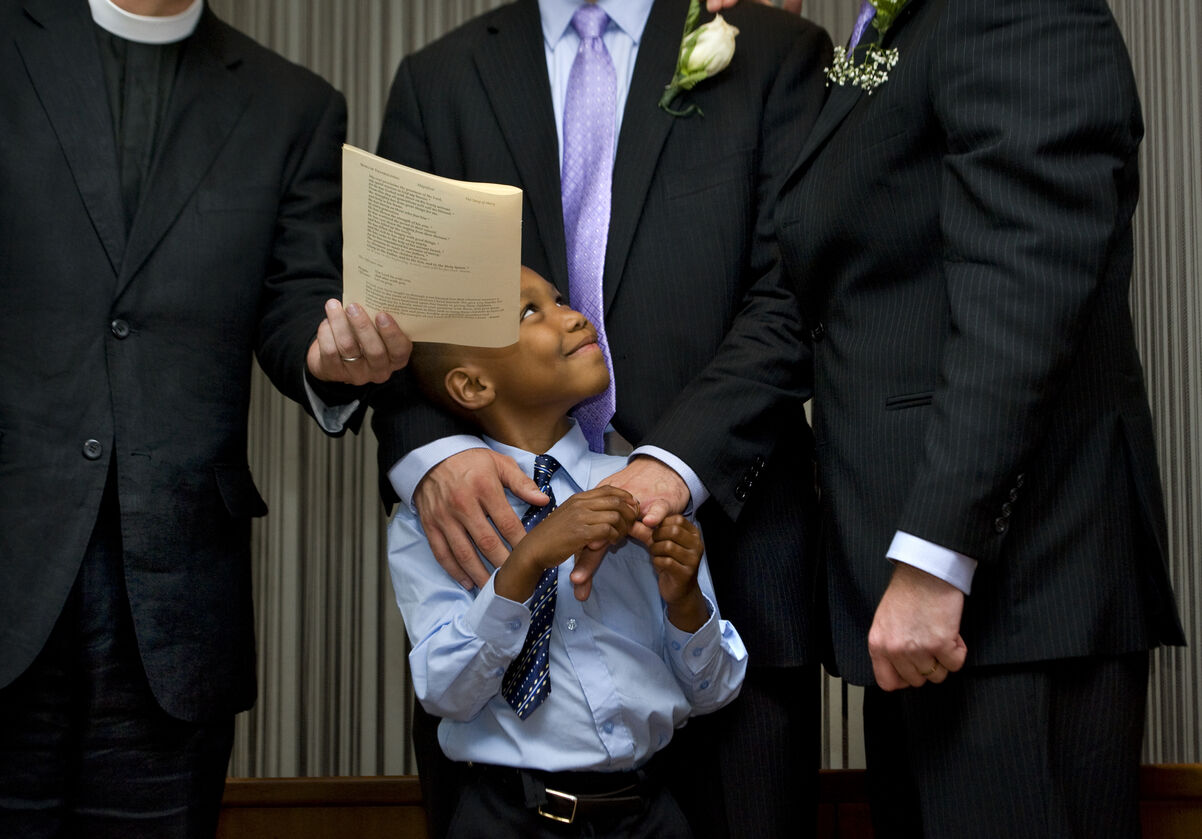Two couples are suing the state of Michigan over a religious exemption law they say allows adoption and foster care agencies to discriminate against same-sex families.
Kristy and Dana Dumont claim that they were turned away by Catholic Charities and Bethany Christian Services, two faith-based agencies located in the Lansing area. The couple says their application was denied because of their sexual orientation.
“We are ready to open our home and our hearts to a child, but were rejected because we’re a same-sex couple,” Kristy said in a statement. “So many children in Michigan need homes. The state should do all that it can to make sure children in the foster care system have access to all available, qualified families.”
The American Civil Liberties Union, who is filing suit on behalf of the Dumonts, claims that the state violated the couple’s rights by allowing this discrimination to take place.
“Allowing state-contracted agencies to screen out prospective families based on religious criteria not only harms the children most in need, it is also unconstitutional,” the civil liberties group said in a Wednesday press release. “It violates the First Amendment’s Establishment Clause, which bars the use of religious criteria in the provision of government services like foster care and adoption services for children in state custody.”
“And it violates the Equal Protection Clause by discriminating against same-sex couples,” the ACLU continued.
They will be joined in the lawsuit by Erin and Rebecca Busk-Sutton, a lesbian couple who lives in Detroit, and Jennifer Ludolph, who grew up in the foster care system. The ACLU states that Ludolph “objects to her taxpayer dollars funding child-placing agencies that make it even harder for foster children to find families by turning away loving and qualified families simply because of the agencies’ religious objections to those families.”
Currently, there are an estimated 13,000 children in Michigan’s foster care system, and 350 require immediate placement. Jay Kaplan, a staff attorney with the ACLU, says that permitting agencies to discriminate against LGBTQ couples diminishes “their chances of being placed in a suitable familyor any family at all.”
If advocates say that there already aren’t enough foster parents to meet demand, they argue the religious exemption issue only makes the problem worse.
Michigan is just one of several states that allows adoption agencies to determine eligibility for placement based on their religious beliefs. These laws have been on the books in Virginia, Mississippi, and North Dakota for a number of years. Meanwhile, South Dakota, Texas, and Alabama all passed their own religious exemption bills in 2017, a response to the Supreme Court decision on same-sex marriage.
Agencies claim that the Obergefell v. Hodges decision forces them to violate the core tenets of their faith. Following the 2015 ruling, agencies in California, Massachusetts, Illinois, and Washington, D.C. voluntarily closed their doors to avoid this conflict.
Religious exemption laws, however, do not apply solely to same-sex couples; the only state whose laws are specific to LGBTQ people is Mississippi. These exemptions also permit adoption agencies to discriminate against interfaith couples, Muslims, Jews or unwed mothers, as well as a number of other groups.
Don't forget to share:
Help make sure LGBTQ+ stories are being told...
We can't rely on mainstream media to tell our stories. That's why we don't lock our articles behind a paywall. Will you support our mission with a contribution today?
Cancel anytime · Proudly LGBTQ+ owned and operated
Read More in Impact
The Latest on INTO
Subscribe to get a twice-weekly dose of queer news, updates, and insights from the INTO team.
in Your Inbox













